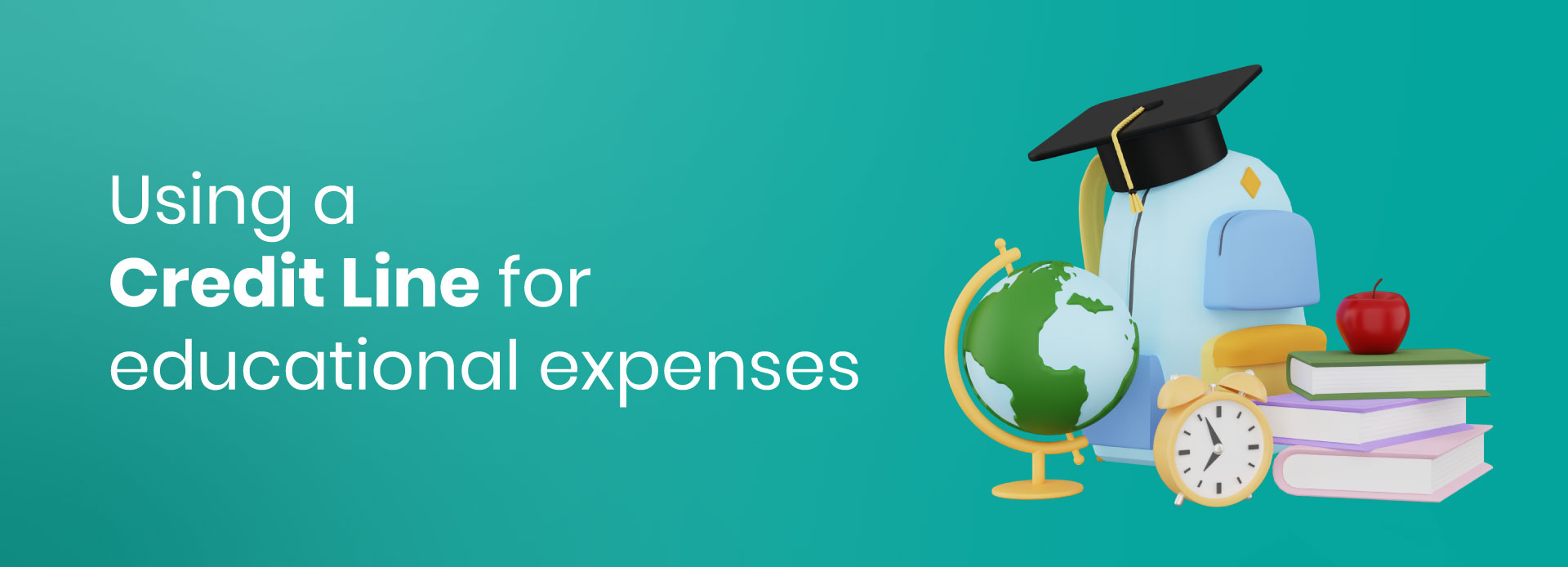
Using a Credit Line for Educational Expenses: What to Consider
21 May 2024 | By INDIE
Do you have a dream college but can’t afford to attend it? Well, don’t give up because an education line of credit can help you. You can apply for a line of credit for education through financial institutions. A student line of credit can help you finance the course that interests you. You can borrow a fixed sum to finance your education through a line of credit loan.
How do They Work?
Financial institutions offer a student credit line. This line of credit can help you pay the outstanding amount left by numerous financing options and student loans. While grants and student loans can cover your housing, tuition, and textbooks, there are several other expenses that you need to meet.
Instead of signing up for a credit card, opt for a personal credit line for students to establish a sense of fiscal responsibility. Furthermore, you can’t access the student line of credit after graduation.
How are They Beneficial?
Here are some advantages of a credit line for education:
➔ These credit lines are flexible. Meaning you can easily access the funds you borrowed.
➔ A credit line for education may allow you to borrow until you reach the credit limit.
➔ The lenders charge the interest rates only on the amount you borrow.
➔ In addition to low-interest rates, the bank expects you to make interest-only payments.
➔ Timely payments will boost your credit score.
➔ You can tailor your repayment plan according to your timeline and budget.
What are Their Disadvantages?
A few of the disadvantages of education credit lines are:
➔ These credit lines might have high rates of Interest. Furthermore, your interest payments may start while you are still in school.
➔ Compounding interest can raise your education line of credit repayment amount.
➔ Without financial discipline, there is always a risk that you may overspend.
➔ The lending side expects you to have a high credit score. The financial institution will reject your application if your credit score is low. Lines of credit don’t require collateral like secured loans do. A high credit score will give the lenders faith that you will not default on your repayment. Moreover, a failure to repay your line of credit will lower your credit score.
Also Read: Using INDIE’s line of credit to finance your dreams
How to Apply for Student Lines of Credit?
Follow these steps to get your education personal credit line approved:
1. Provide personal details on the application form.
2. Specify your annual income and work details.
3. Provide details like your monthly expenditures.
4. Please highlight if you have any monthly obligations. They include expenses like credit card dues, loans or credit line repayments.
5. Provide proof that you enrolled in the university.
How are They Different from Student Loans?
You may be wondering how student lines of credit are different from student loans offered by banks. Here are how these two financing options are different from each other:
Factors |
Student Loans |
Education Lines of Credits |
Repayment Tenure |
The repayment tenure begins after your graduation. Furthermore, these loans offer a six-month grace period. However, please note that the rate of interest increases over time. |
The repayment tenure commences post-study. You begin with interest payments. Gradually, you start paying for the principal. |
Eligibility |
They depend on your financial requirements. |
They are dependent on your and guardians’ financial status. |
In-School Payments |
Student loans don’t require payments when you are studying. |
Student lines of credit require interest-only payments. |
You could manage your school expenditures by preparing an annual student budget. Don’t feel intimidated by this action because budgeting is easy nowadays. You can use an online student budget calculator to prepare a budget for the school year. Conversely, use the education line of credit calculators to ascertain the monthly repayment amount for the credit line for financing your education. Use these calculators to learn how to fund your education and build savings.
Disclaimer: The information provided in this article is generic and for informational purposes only. It is not a substitute for specific advice in your circumstances. Hence, you are advised to consult your financial advisor before making any financial decision. IndusInd Bank Limited (IBL) does not influence the views of the author in any way. IBL and the author shall not be responsible for any direct/indirect loss or liability incurred by the reader for making any financial decisions based on the contents and information.





